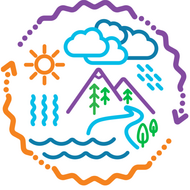Youth Fellowship
(View Complete Item Description)An important need in climate education is to include youth voices in the planning and development of climate science education programs across Washington. EarthGen’s Youth Fellowship hosts a small group of high school students in service to this need. Fellows complete approximately 50 hours of training, research, and implementation over the course of the school year. In the first part of their fellowship, youth receive approximately 20 hours of training about climate change and climate justice in asynchronous and synchronous formats. During the second part of their fellowship, the youth develop a research question and collect data on what students across Washington would like to see included in climate science education. Data collection includes focus groups, interviews, and surveys. At the culmination of the experience, Youth Fellows analyze their findings and share their results in a creative format. Each youth has an adult sponsor to support their work and are awarded a stipend.
Material Type: Teaching/Learning Strategy





